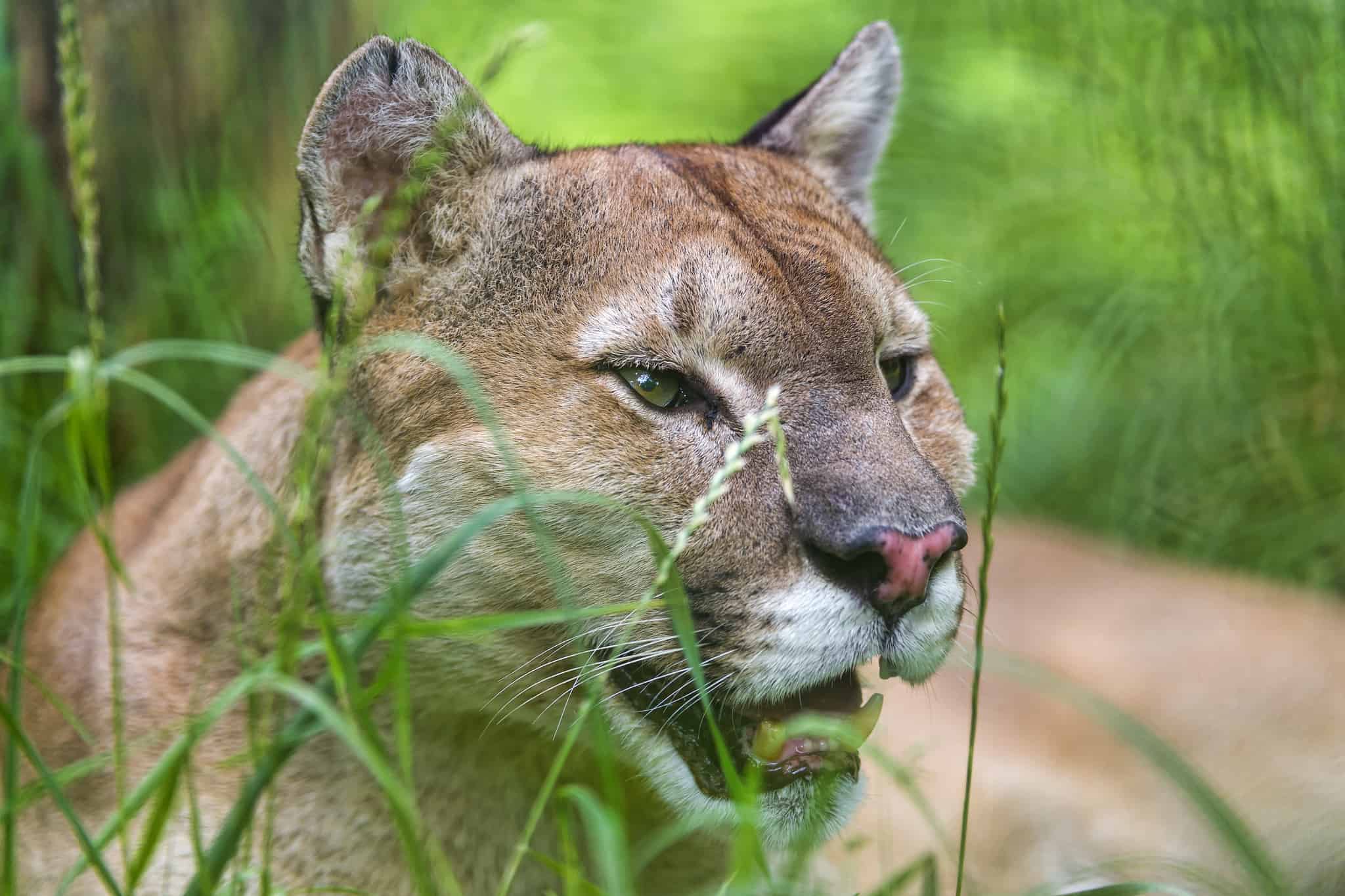The puma is the first animal that I recorded on my camera traps that truly surprised me. I was working on the same property as my kids’ school. I had placed a few camera traps in the surrounding forest and students from the school and I would go through all of the videos and learn about the local animals once a week in Wildlife and Technology Club.
The school is located in the middle of a busy little beach town in a stretch of busy little beach towns. I hiked up a mountain, away from the roads and people, for only about 30 minutes to reach a camera trap that I had placed at a dwindling dry-season waterhole. I flicked on the camera, stuck my face in front of the little LCD viewing screen on the camera and boom, a perfectly-lit, daytime video of a female puma. She walked directly toward the camera, past the puddle and got so close to the little tree that my camera was mounted to that you could hear a soft purr as she passed.
After the burst of joy that accompanies videos of that quality, the surprise of the location hit home. ‘Here?!’ I was close enough to civilization that I could see luxury ocean-view homes perched on neighboring hilltops.
As I reflect on it now, I had incorrectly assumed that there was some sort of buffer between the places where people are busy doing people things and the places where pumas are busy doing puma things. But that’s not really the case in Costa Rica. They’re one of the species in the wildlife books with a range map that’s completely colored in. That is, their range in Costa Rica, is Costa Rica, including all of the microhabitats that make this tiny country feel like a lot of different tiny countries smashed into one.
But to fully appreciate the puma’s adaptability, you need to zoom out and consider its range in the world. Tico pumas have relatives spanning 28 countries from Canada to the tip of Chile. It’s wild to think that the same species that’s trudging through the snow in Canada is also chilling beneath a palm tree in the sunbaked tropical forest outside my house.
Part of being adaptable to different habitats is having the ability to get energy from a large variety of sources. Pumas in Costa Rica get their energy from sources that range from white-tailed deer and peccaries down to iguanas and rats. Included in that large range of prey items are a mess of arboreal species, species that live in the trees. Pumas are incredible climbers and have the ability to jump over 16 feet (!) in the air. They use those abilities to hunt porcupines, tamanduas, and monkeys.
My wildlife book says, ‘in a study in Corcovado, 4 out of 11 puma scats [poops] contained monkey remains.’ This is another case where my observations from camera trap videos coincide nicely with what my wildlife book is telling me. Over the years, I’ve recorded a lot of videos of pumas with their heads in the clouds. They’re frequently looking up. Sometimes they’ll pause while walking by the camera and peer upward toward something rustling in the leaves. More than once I’ve recorded videos of one taking a seat directly in front of the camera and gazing into the tree branches for long enough to record a whole series of ‘what’s he looking at?’ videos.
I’ve recorded pumas in almost every camera trap project that I’ve completed, and if I had to guess, allowed more time in the field, I probably would have recorded a puma in every project. Even with that relatively high frequency of recordings, I’m still pumped about every single puma video that I get.
I hope you enjoy the following video of a few of my favorite puma clips.
Vincent Losasso, founder of Guanacaste Wildlife Monitoring, is a biologist who works with camera traps throughout Costa Rica. Learn more about his projects at:
Guanacaste Wildlife Monitoring
https://www.facebook.com/guanacastewildlifemonitoring






